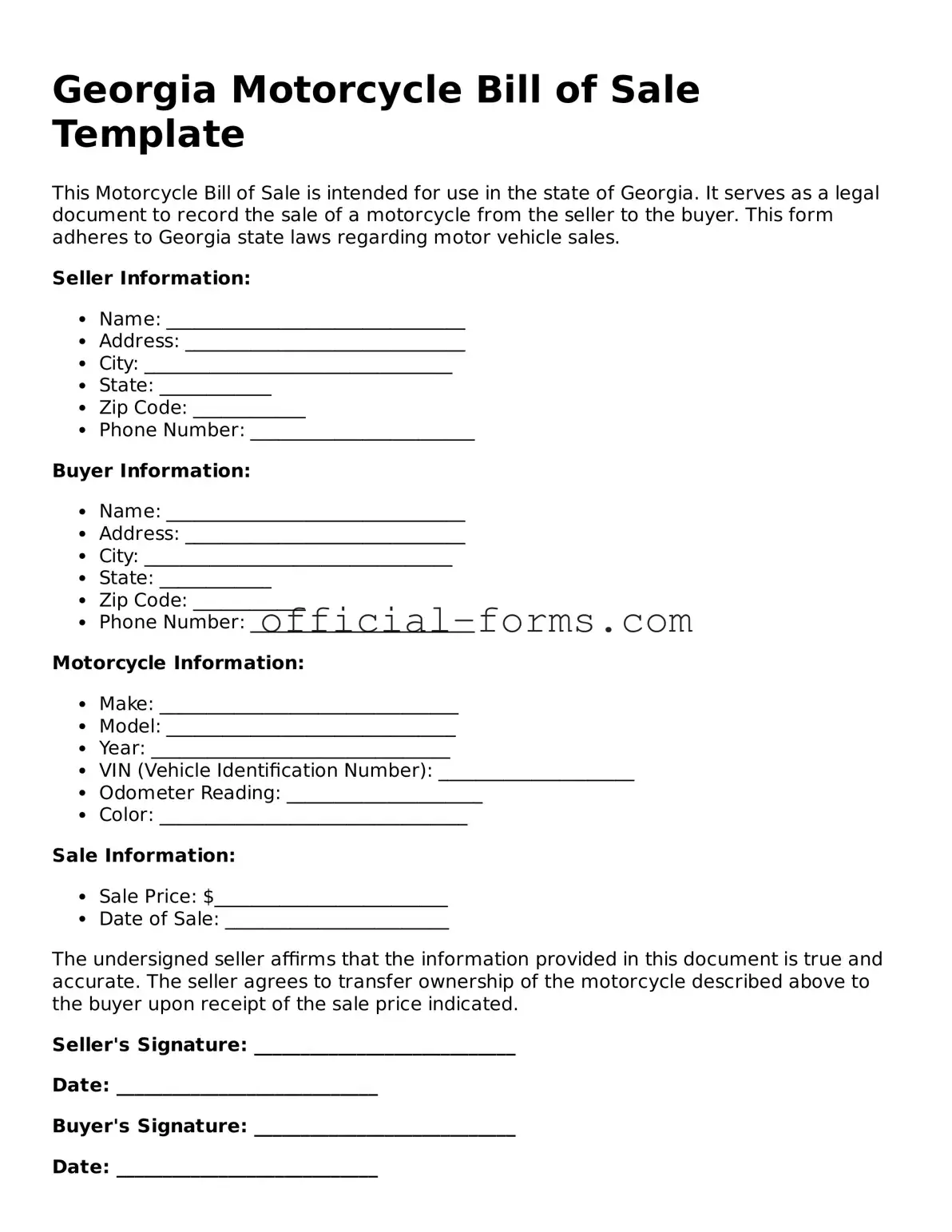Official Georgia Motorcycle Bill of Sale Document
The Georgia Motorcycle Bill of Sale form is a legal document that records the transfer of ownership of a motorcycle from one party to another. This form serves as proof of the transaction and includes essential details such as the buyer's and seller's information, the motorcycle's description, and the sale price. Proper completion of this form is crucial for ensuring a smooth transfer and for future reference in case of disputes.
Open My Motorcycle Bill of Sale Now

Official Georgia Motorcycle Bill of Sale Document
Open My Motorcycle Bill of Sale Now
Don’t leave your form incomplete
Finish Motorcycle Bill of Sale online quickly from start to download.
Open My Motorcycle Bill of Sale Now
or
➤ PDF
